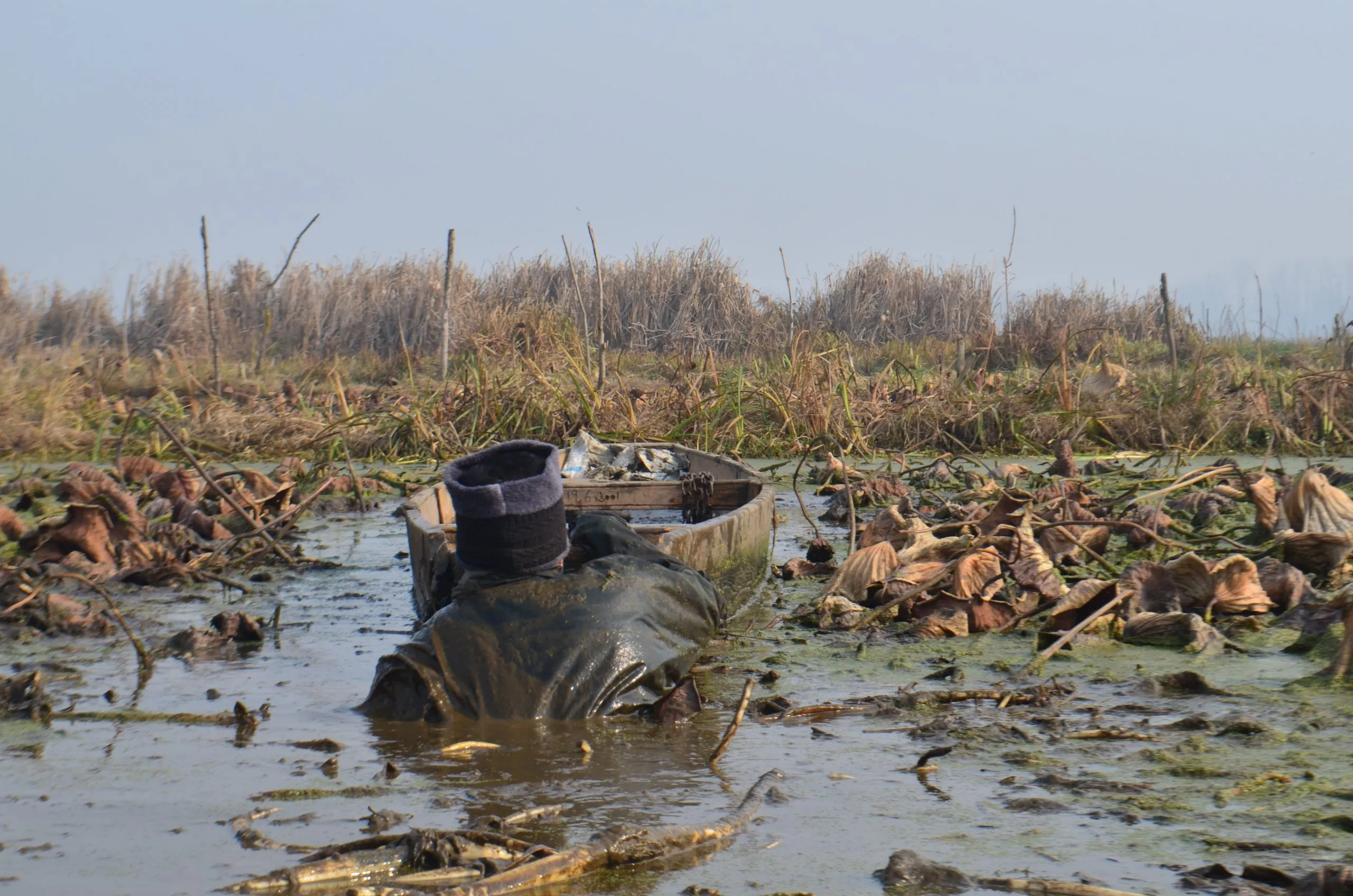Srinagar, Dec 24: In the chilling waters of Anchar Lake, merely 10 kilometers away from the heart of Srinagar, Altaf Ahmad (42) and his fellow harvesters embark on a daily ordeal to gather Nadru, the lotus stem, amid frigid temperatures and polluted waters. The lake, once a source of sustenance, has turned toxic, posing serious threats to the lives of these men.
As the morning fog shrouds the lake and the lotus leaves hang lifelessly over the surface, Altaf and his comrades, perched on their shikaras, brave the bone-chilling cold.
As afternoon nears, the men take out their pherans (long cloak) and socks, put on their wetsuits, take a deep breath and dive into the chilling and murky waters of the endangered lake.
“Our fingers get crooked and toes twisted due to the cold,” laments Altaf Ahmad as he points towards his distorted hands and feet.
Risky Job
The Nadru harvesters face daily challenges, including the risk of infections from contaminated water splashing into their eyes, ears, or nostrils. Two lives have already been claimed by infections entering open wounds. The polluted water forces them to spend valuable time cleaning the lake, affecting both production and harvest.
It’s not like what people think, one cannot harvest Nadru just by sitting in the Shikara. They are over 7-feet down the surface and it’s not easy to get them up, say the harvesters.
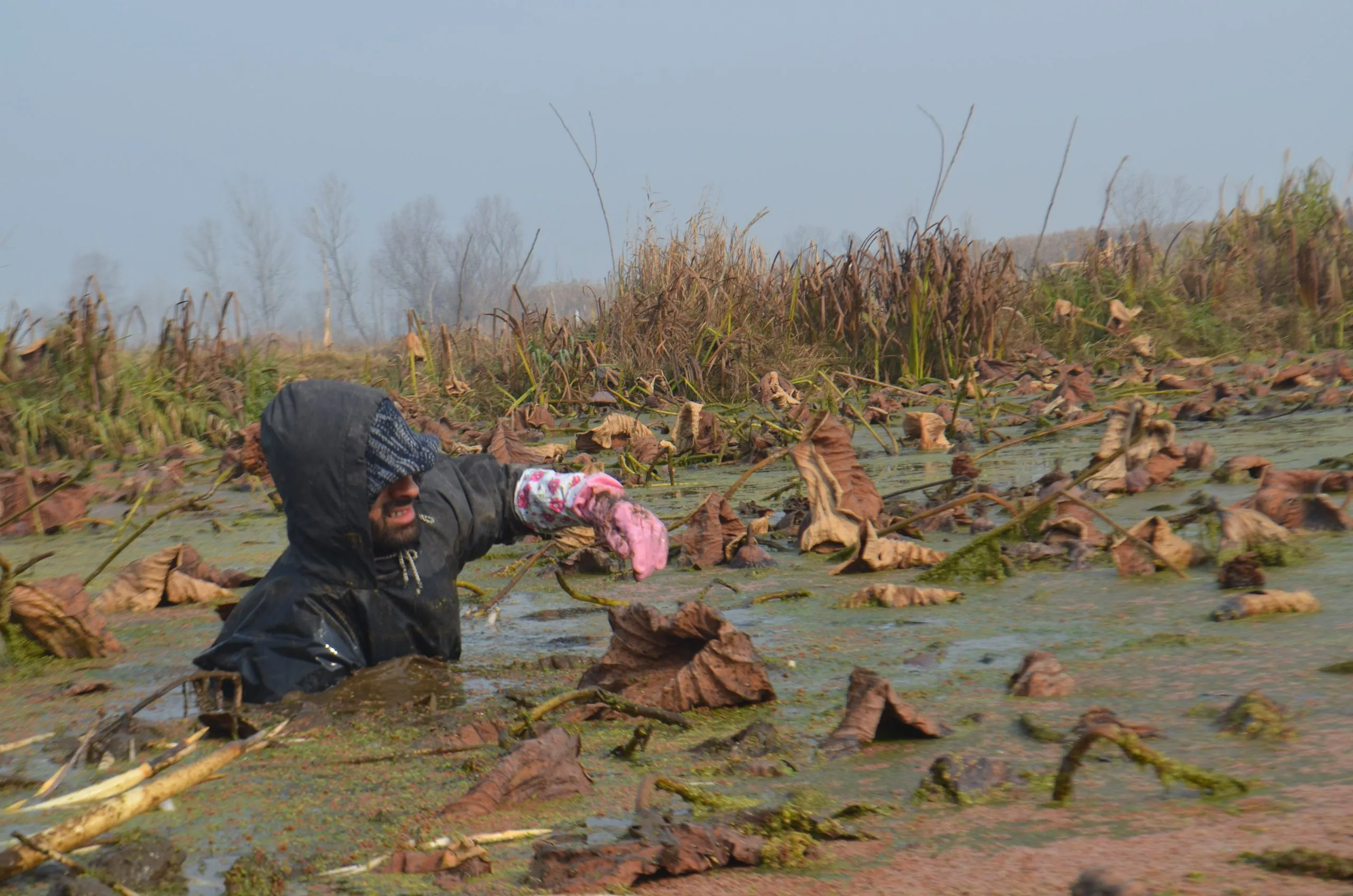
Polluted Waters
Just over two-decades ago, they were able to drink this water and use it for other domestic purposes. But now, with every kind of sewage flushed into the lake, the water has turned poisonous, leaving little hope of survival for the men involved in this business.
As the men dive and start looking for lotus stems with their feet, creating wobbles in the water, the lake reveals its dirty secrets: a strong stinking smell fills the air, making it nearly impossible for outsiders to stay there.
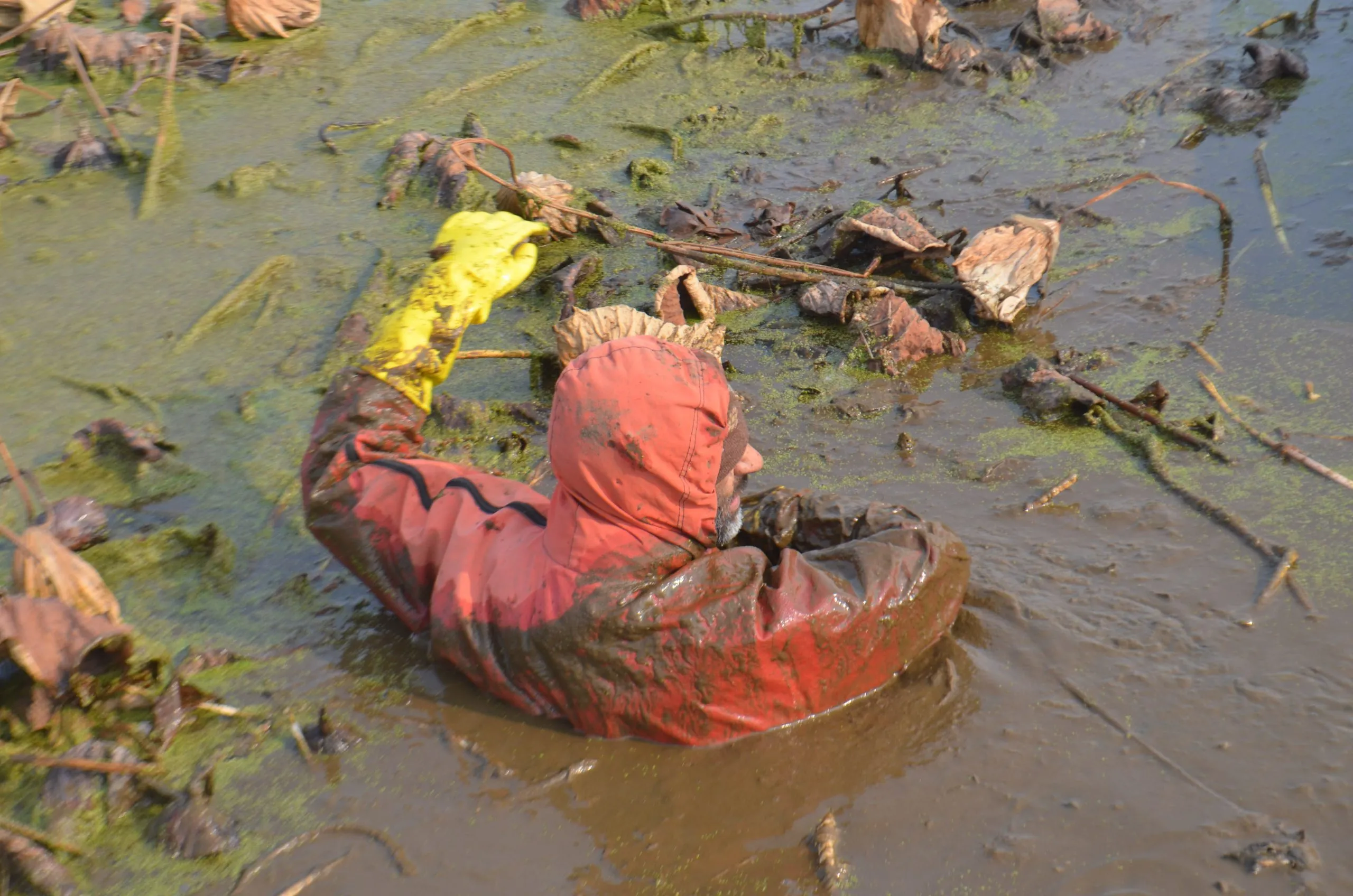
“This is the atmosphere we have to face on a daily basis, no one can imagine our struggle to survive,” says 51-year-old Nazir Ahmad Bhat.
“Doctors tell us that there are many problems in our body, because of these polluted waters,” says Altaf Ahmad.
Pollution forces the farmers to clean the waters on a daily basis, consuming much of their time and affecting the harvest, they say.
“We have to remove the weeds, the algae and other unwanted layers that could hamper both the production and the harvest,” says Altaf.
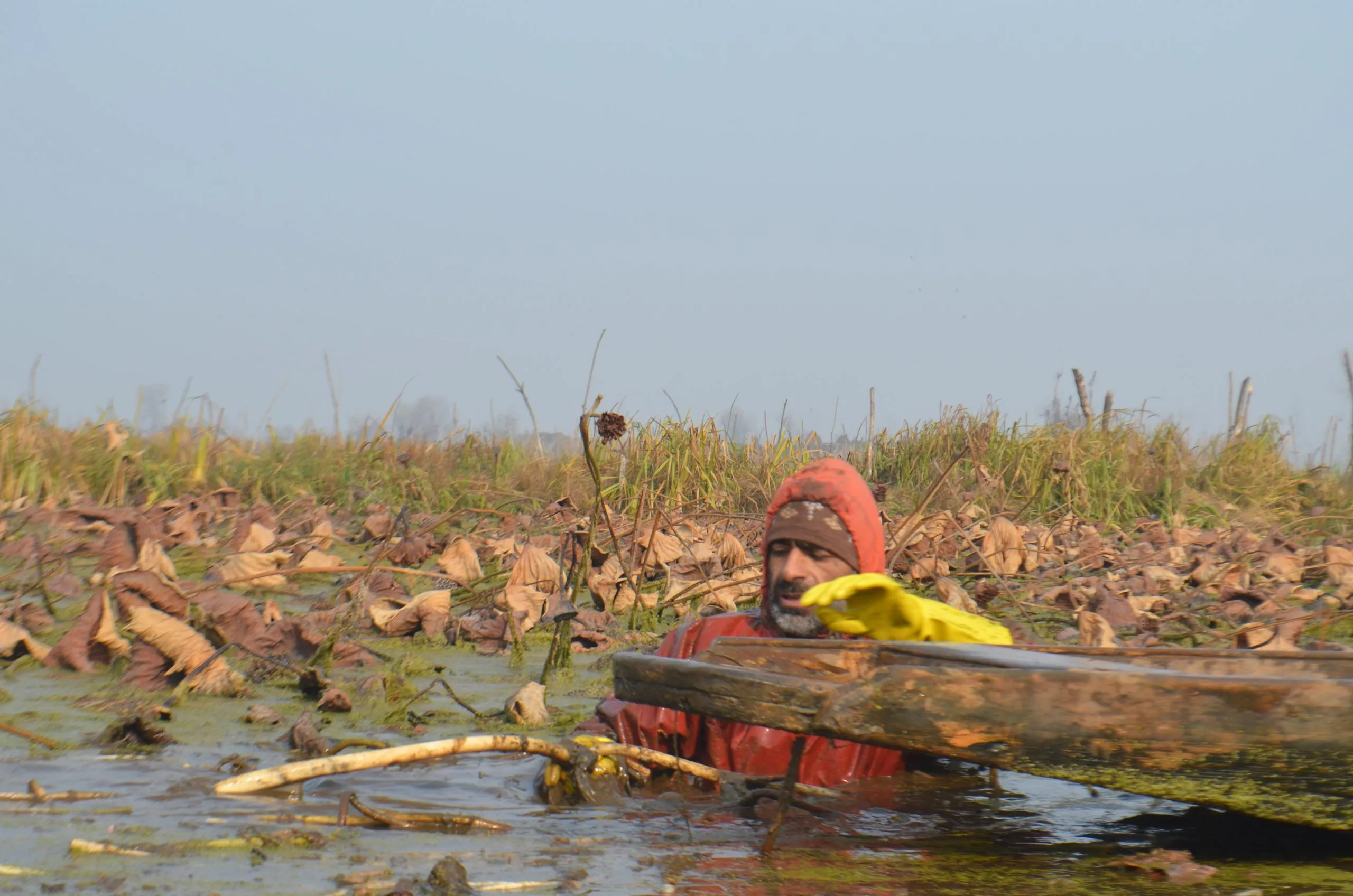
When Altaf started this work with his grandfather and father over two decades ago, there was no need to clean, he says.
“In those days, when we dived, we could see over 10-layers of Nadrus, but now due to pollution, there is hardly one layer.”
The direct disposal of chemical and other waste from the nearby SKIMS hospital has turned the water poisonous, farmers say. “We can’t give this water to our animals, they will die instantly,” they claim.
While some farmers who own their part of water closer to the hospital claim that only filtered water enters their area, those owning further away claim the filthiest waters enter theirs.
Being Hungry
The farmers don’t have their lunch, fearing the food won’t digest in the freezing waters. Only after they finish the work in the evening, they have tea.
“We leave our homes at 8:00 in the morning and get back around 9:00 in the night. By our lord, our mothers and wives have little hope of our return, because this is a deadly job,” the farmers assert collectively.
Not Enough
Every day they put their life on the line to earn their livelihood, and after wading into freezing, polluted waters to harvest lotus stems, the farmers say they are paid little by the middlemen.
With only Rs 400-500 per day, the farmers say they hardly earn enough to feed their families and simultaneously educate their children.
“We are only able to do one thing and we give priority to not to die of hunger,” they say.
The major part of their earnings, farmers say, is spent on purchasing medicines and tubes to keep themselves alive and protect their body from further damage.
“Look at our faces, observe our hands and feet, see what this polluted water has done to us,” they cry in frustration.
Maybe the solution for this little pay is that the government introduces Nadru in the national and international markets, so we get fair prices for our hard labour.
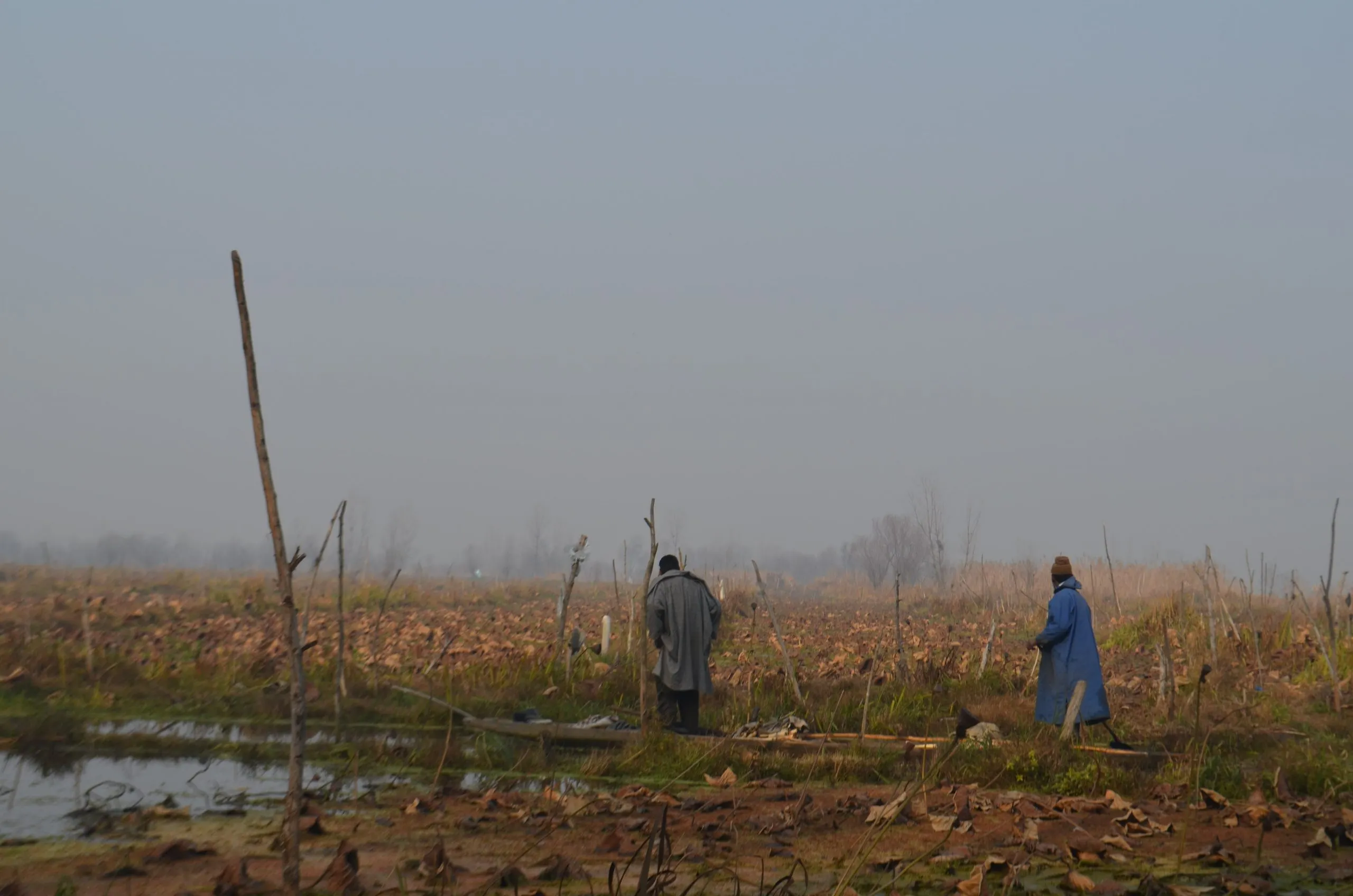
No adequate safety measures
Although they wear wet suits, the farmers say they are only able to purchase the low-quality suits as they can’t afford the high-quality ones.
There is a need to buy a new suit every six months, and the low-quality ones don’t keep them completely dry. If the administration can’t do anything, at least they should provide original suits, demand farmers.
Low water levels
The makeshift dam near Sangam Kadlebal keeps breaking, affecting the water levels in the harvesting portion.
Over 200 men are required to tie that 300-feet makeshift dam. The government must reduce the size and build a proper dam with a control unit, farmers demand.
Tying up the dam takes a whole day, meaning, losing their one day of earning.
Low water levels make it almost impossible to harvest lotus stems, they say.
Victims of stereotypes
The polluted waters have impacted the physical appearance of these men, making them the victims of stereotypes in the gatherings like weddings.
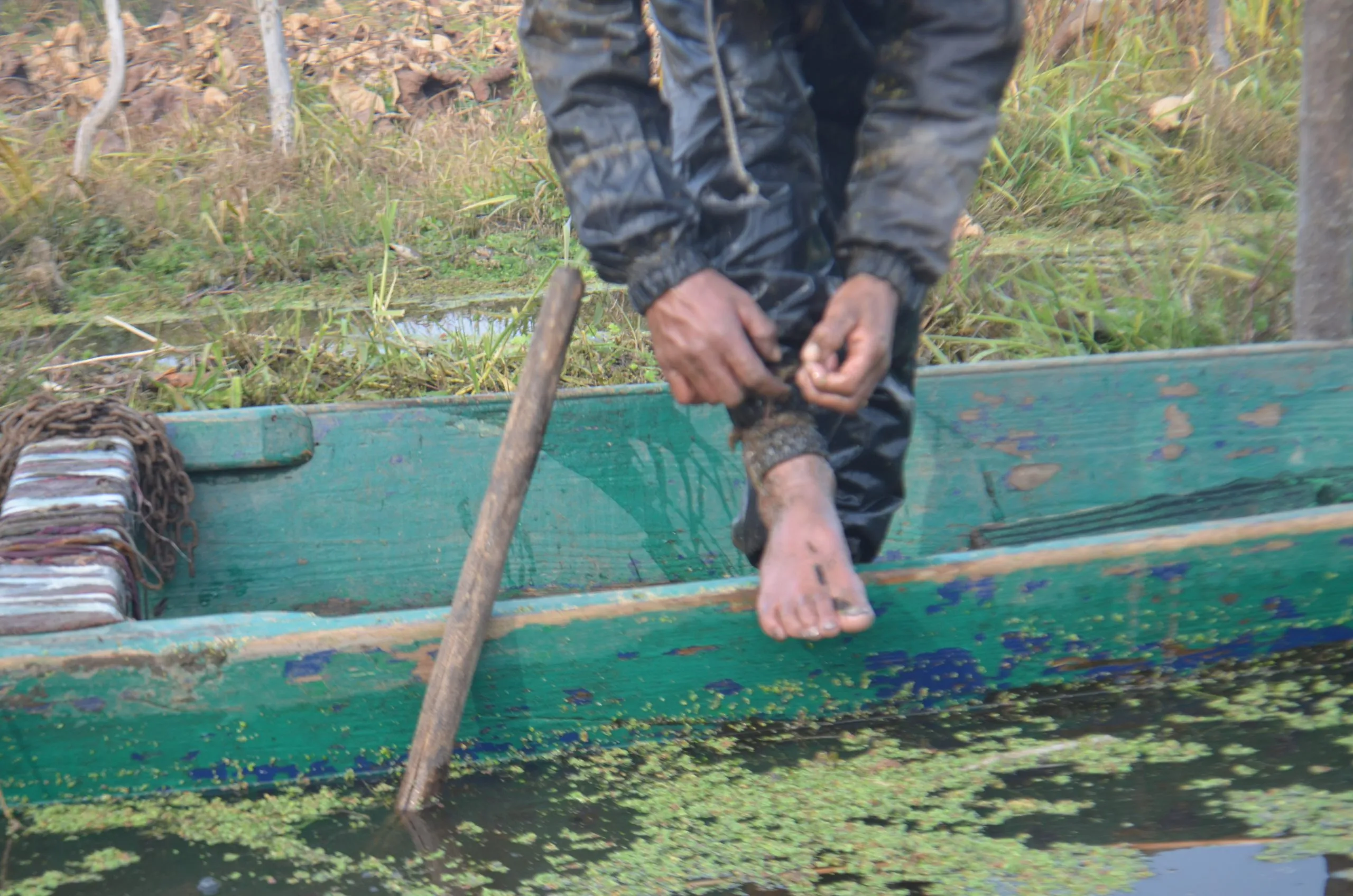
“If we go to a wedding feast, the men of our community sit together over a Traami, because if we sit with someone who is not from this gig, he might refuse to eat with us after seeing our hands,” says Altaf Ahmad.
“We have been victims of stereotypes and racism too, but we have learned to live with it now,” say farmers.
“Now, we might say we won’t do this work but we will die of hunger. Because we have been doing this for decades, we can’t fit in any other job,” they say.
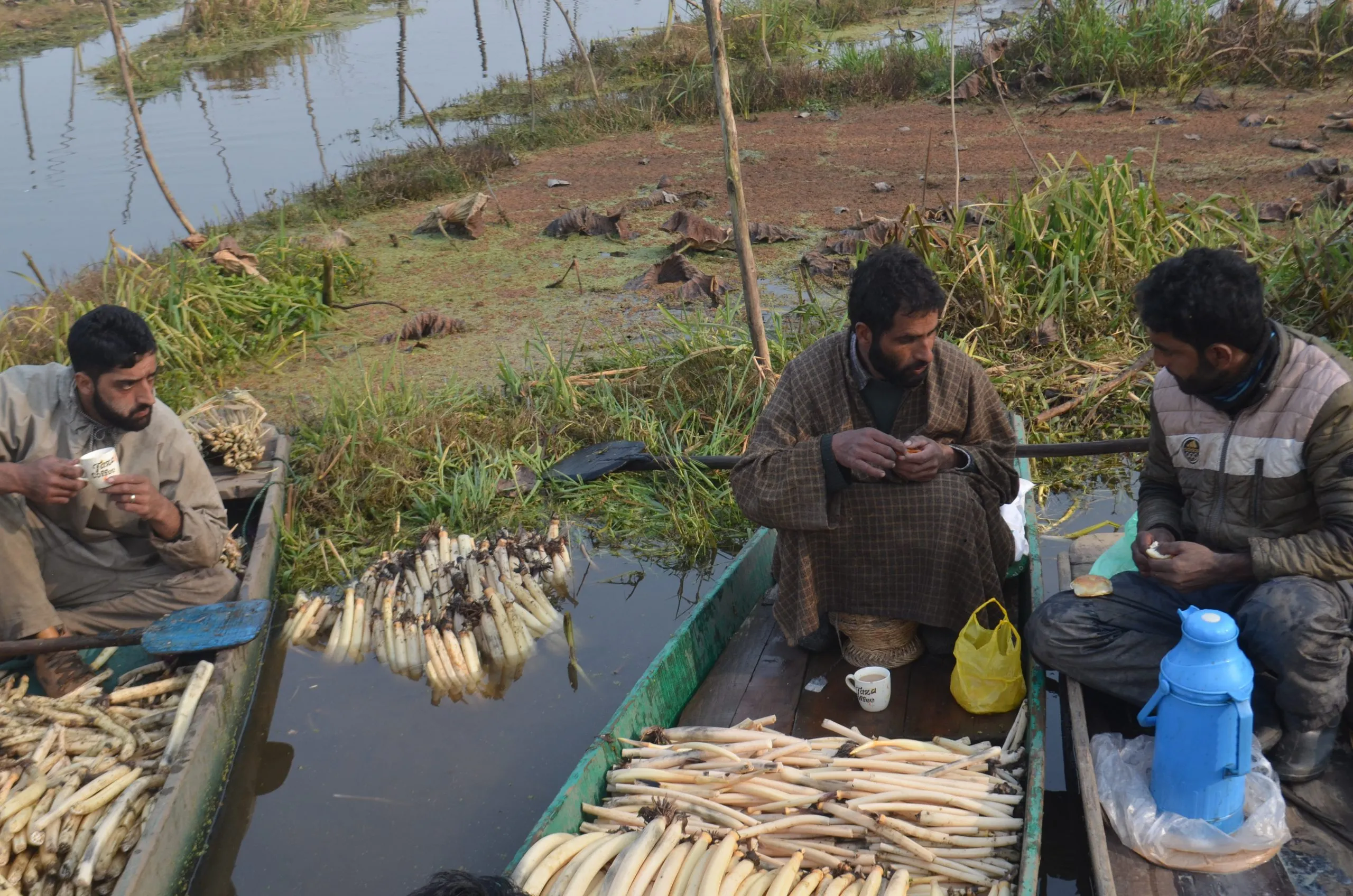
As the sun sets, and shikaras are filled with harvested lotus stems, Altaf and his comrades gather, sipping warm tea, preparing for another day of struggle. The fight for survival continues, with hopes that their plight reaches beyond the polluted waters of Anchar Lake.


